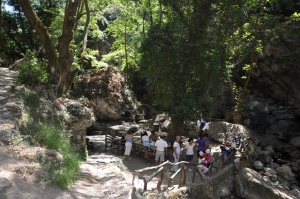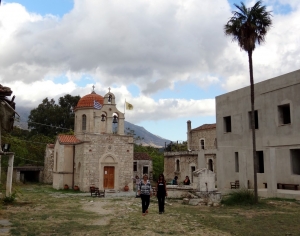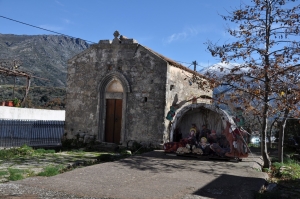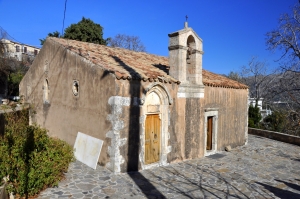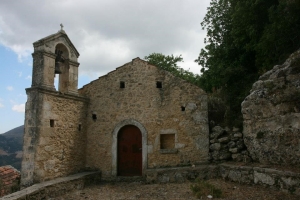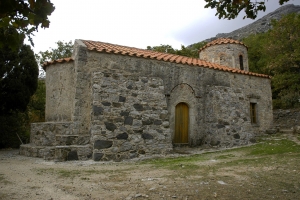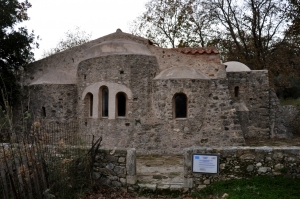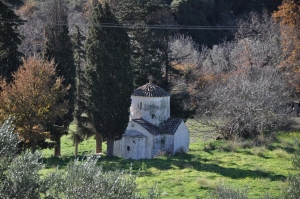Today the cave hosts the beautiful church of St. Anthony, the patron of children, which is below the roofs of the Gorge. The cave and the gorge can be visited, since the Directorate of Forestry has organized the area.
The monastery of Asomati is located 35km southeast of Rethymnon, amid a verdant valley of Amari formed between Kedros Mount and Ida Range. The church of the monastery is dedicated to the Archangels (= Asomati).
The church of Panagia (Our Lady), located at the village Thronos at Amari province is a single-aisled vaulted church built around 1300. The temple was built on the ruins of an early Christian basilica of the 4th century, from which mosaics are preserved. The church bears frescoes of the 14th-15th century, while there is an inscription of 1491.
The church is located at the village of Meronas and it is earliest mentioned in a notary document of 1301. The settlement was named Meronas, from the Greek verb merono (relax, cool down), as according to tradition, at this place Virgin Mary (Panagia) relaxed when the temple was built at this place.
In one of the greenest areas of Crete, Amari, at the hilltop of Veni hill you will meet the deserted monastery of Saint Anthony and the homonym cavernous temple celebrating on January 17.
Above the village Ano Meros, on Kedros mount, there is the old uninhabited Monastery of Kaloidena with the restored Byzantine temple dedicated to Lord Christ. Today, apart from the church, almost nothing reminds the monastery.
The beautiful church of Panagia Kera by Amari village is hidden amongst olive groves. The three-aisled church of the 15th century is built on the place of a previously damaged cruciform church with a dome (13th century), which in turn is believed to have been built on the site of a Grecoroman temple of Apollo.
The church of Agia Paraskevi is a dependency of Asomati monastery. It is small cruciform church with a reserved arcosolium (tomb) and only one mural surviving. The frescoes depicts Christ blessing the donors of the temple.











